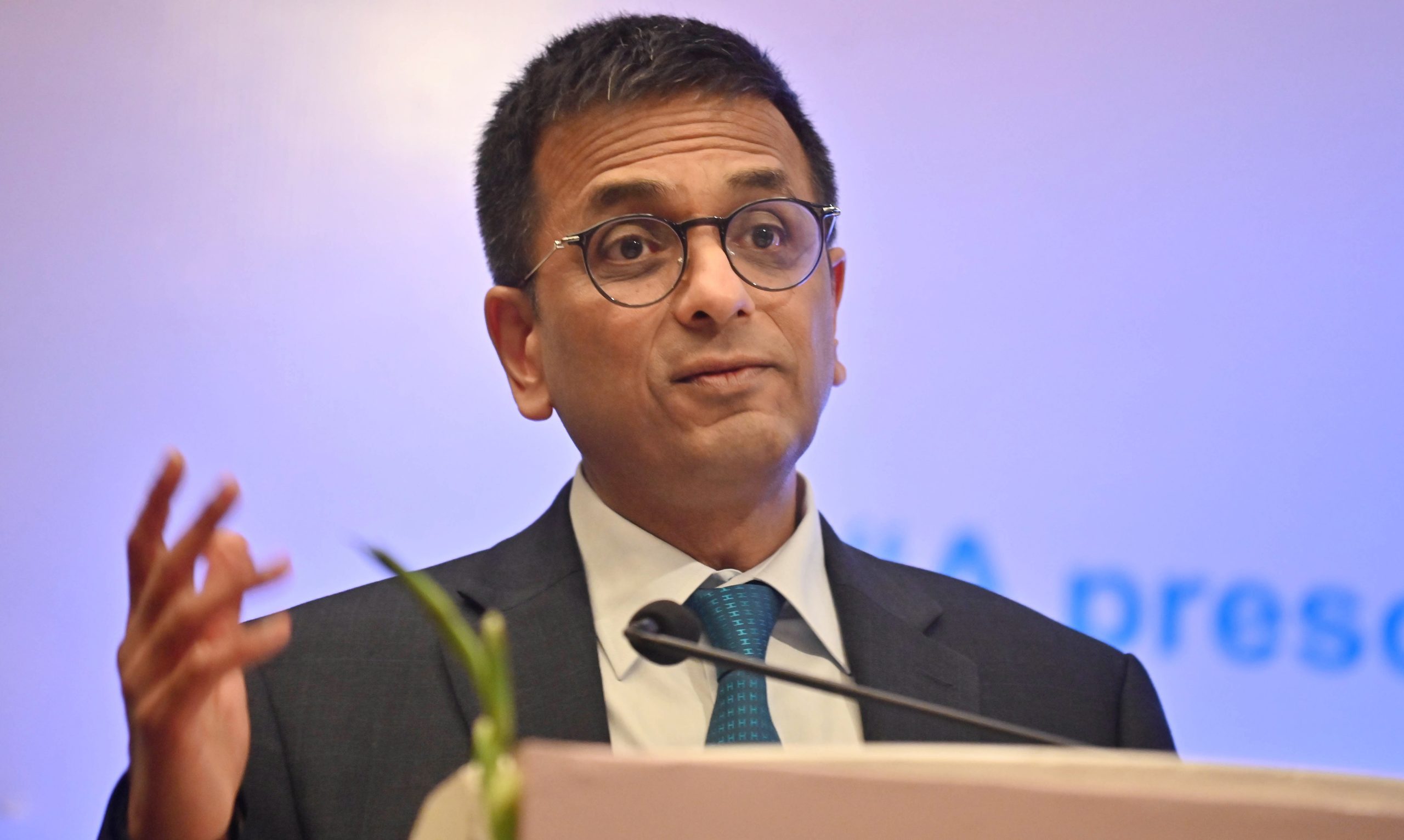BENGALURU, Nov 25: Chief Justice of India D Y Chandrachud on Saturday said identity and its recognition by the State plays a crucial part in what resources people get and their ability to express their grievances and demand their rights.
Addressing the plenary session of the 36th ‘LAWASIA’ conference virtually, he spoke on “Identity, the Individual and the State – New Paths to liberty”.
LAWASIA is a regional association of lawyers, judges, jurists and legal organisations, which advocates for the interests and concerns of the Asia Pacific legal progression.
Noting that liberty is the ability to make choices for oneself and change our course of life, the Chief Justice said identity intersects with the person’s agency and life choices.
“As lawyers, we are constantly confronted with this intersection and the role of the State to limit or expand the life opportunities of the people. While the relationship between the state and liberty has been understood widely, the task of establishing and explaining the relationship between identity and liberty is incomplete,” he said.
Traditionally, liberty has been understood as the absence of State interference in a person’s right to make choices. However, contemporary scholars have come to the conclusion that the role of the State in perpetuating social prejudices and hierarchies cannot be ignored, Chief Justice Chandrachud said. “In effect, whether the state does not intervene, it automatically allows communities with social and economic capital to exercise dominance over communities who have been historically marginalised.”
He also said people who face marginalisation because of their caste, race, religion, gender, or sexual orientation will always face oppression in a traditional, liberal paradigm. This empowers the socially dominant.
Citing English philosopher John Stuart Mill’s book on Liberty published in 1859, he said the author discussed the historical struggle between liberty and authority describing the tyranny of the government which in his view needs to be controlled by the liberty of citizens.
Mill devised this control of authority into two mechanisms. Firstly, necessity rights belonging to the citizens and secondly that there must be constitutional checks for the community to consent to the impacts of the governing path, according to him.
The idea of liberty, the Chief Justice said, can be summarised in the following phrase: “Your right to swing your fist ends where my nose begins.”
He also spoke how in the digital age “we are faced with several fascinating aspects of Artificial Intelligence.
“There is a complex interplay between Artificial Intelligence (AI) and personhood where we find ourselves navigating uncharted territories that demand both philosophical reflection and practical considerations.”
In contemplating the intersection of AI and personhood, “we are confronted with fundamental questions about the ethical treatment of these technologies….”
He cited an example of a human robot (Sophia) which was granted citizenship (in Saudi Arabia) and said, “We must reflect on whether all humans who live, breathe and walk are entitled to personhood and citizenship based on their identity.”
The Chief Justice also stressed: “We must broaden our perspectives. The notion of popular sovereignty, for example, inherently demands the inclusion of pluralism and diversity at its core.”
In India, he said, affirmative action has been prescribed and even mandated by the Constitution of India in the context of Scheduled Castes, the Scheduled Tribes, and Backward Classes, he said. (PTI)


